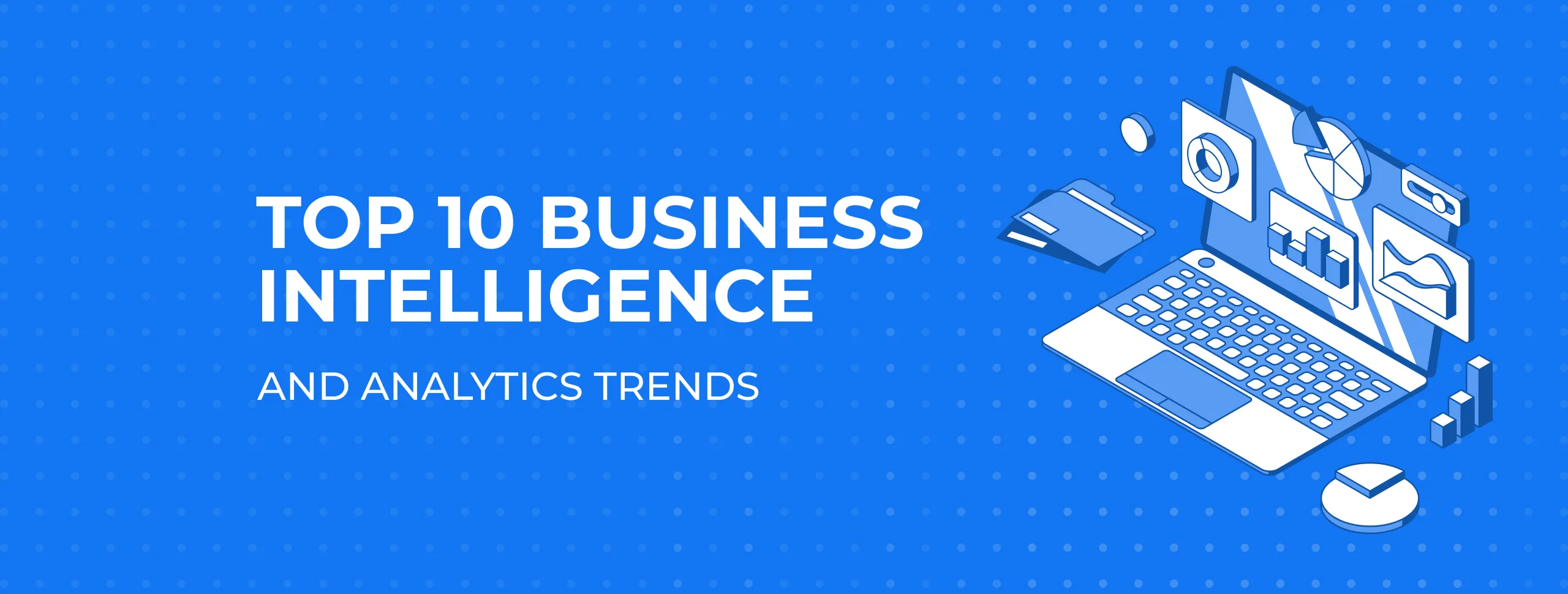
Top 10 Business Intelligence and Analytics Trends

2019 will be the year of embedded BI tools and data quality management: clear and secure information combined with simple yet powerful presentation. It will also be the year of artificial intelligence and multi-cloud strategy. Read the Top Ten BI Trends for 2019 according to Magora experts!
1) Artificial Intelligence
This is the number one trend chosen by Gartner in the Strategic Technology Trends report for 2019, as well as number one on our list of business intelligence trends. Artificial Intelligence (AI) is a science designed to make machines perform what is usually done by sophisticated human intelligence. Together with machine learning, Artificial Intelligence is changing the way we interact with data analysis and management.
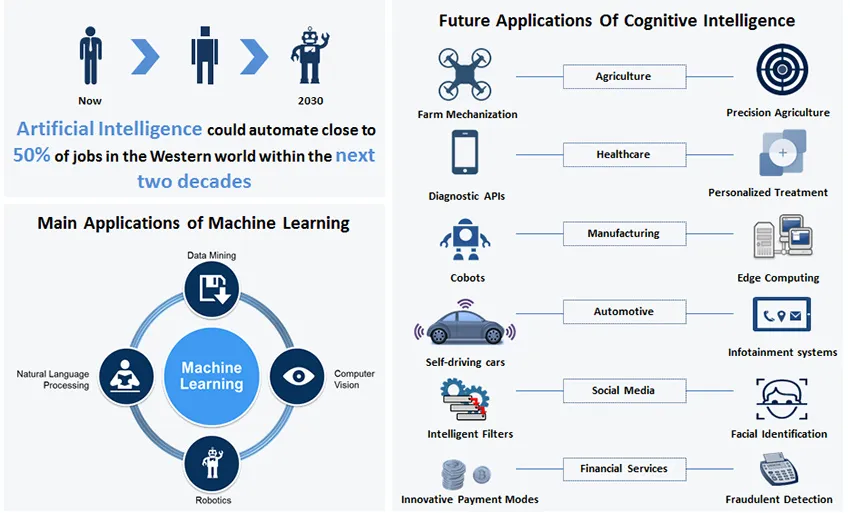
The demand for real-time analysis tools is growing and the arrival of the Internet of Things (IoT) brings countless statistics, leading to intelligent analysis and management becoming a priority. However, today's business wants to move forward and predictive analytics is another trend that needs attention.
2) Predictive and Prescriptive Analysis Tools
Tomorrow's business analysis looks to the future and tries to answer the burning questions: How can we do that? What will happen? Therefore, predictive and prescriptive analysis is the analytical trend most discussed among BI professionals.
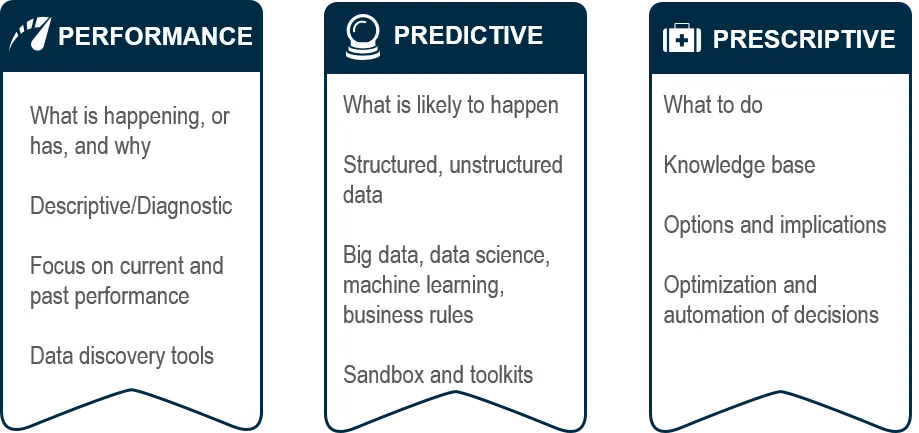
Predictive analysis is the practice of extracting information from existing datasets to predict future probabilities. It is an extension of data mining involving only past statistics. Predictive analysis includes the estimation of future information and therefore always suggests the possibility of errors in the definition. Predictive analysis shows that what is likely to happen in the future is an acceptable level of reliability, including some alternatives and risk assessments. Applied to business, predictive analytics investigate current and historical facts to better understand products, partners, competitors and customers, and to predict potential risks and opportunities for the company.
Among different predictive analyses, two have recently attracted the most attention - artificial neural networks (ANNs) and mobile autoregressive means (ARIMA).
- In artificial neural networks, information is processed in a similar way to biological neurons. Biology is replication by technology: information flows into the mathematical neurons, is processed by them, and the results flow out.
- ARIMA is a model for time series analysis that uses past statistics to model existing data and predict the future. The analysis includes verifying autocorrelations - comparing how current values depend on the past - in particular choosing how many steps to take in making predictions.
Prescriptive analysis examines content to determine which decisions should be made and what steps taken to achieve the desired goals. It includes graphical analysis, sophisticated event processing, simulation, neural networks, heuristic techniques, recommendation mechanisms and mechanical learning techniques.
3) Natural Language Processing
This trend is highly relevant to the BI trend mentioned above. Natural language processing, or computing linguistics, is a branch of artificial intelligence related to what computer programs understand about human languages. It is based on linguistics and deep learning - a type of AI able to find a relevant correlation by analysing large amounts of data, thus increasing understanding of the program. Deep learning is a more intuitive and flexible way of learning to identify the speaker's intentions, just as children learn to speak via their environment.
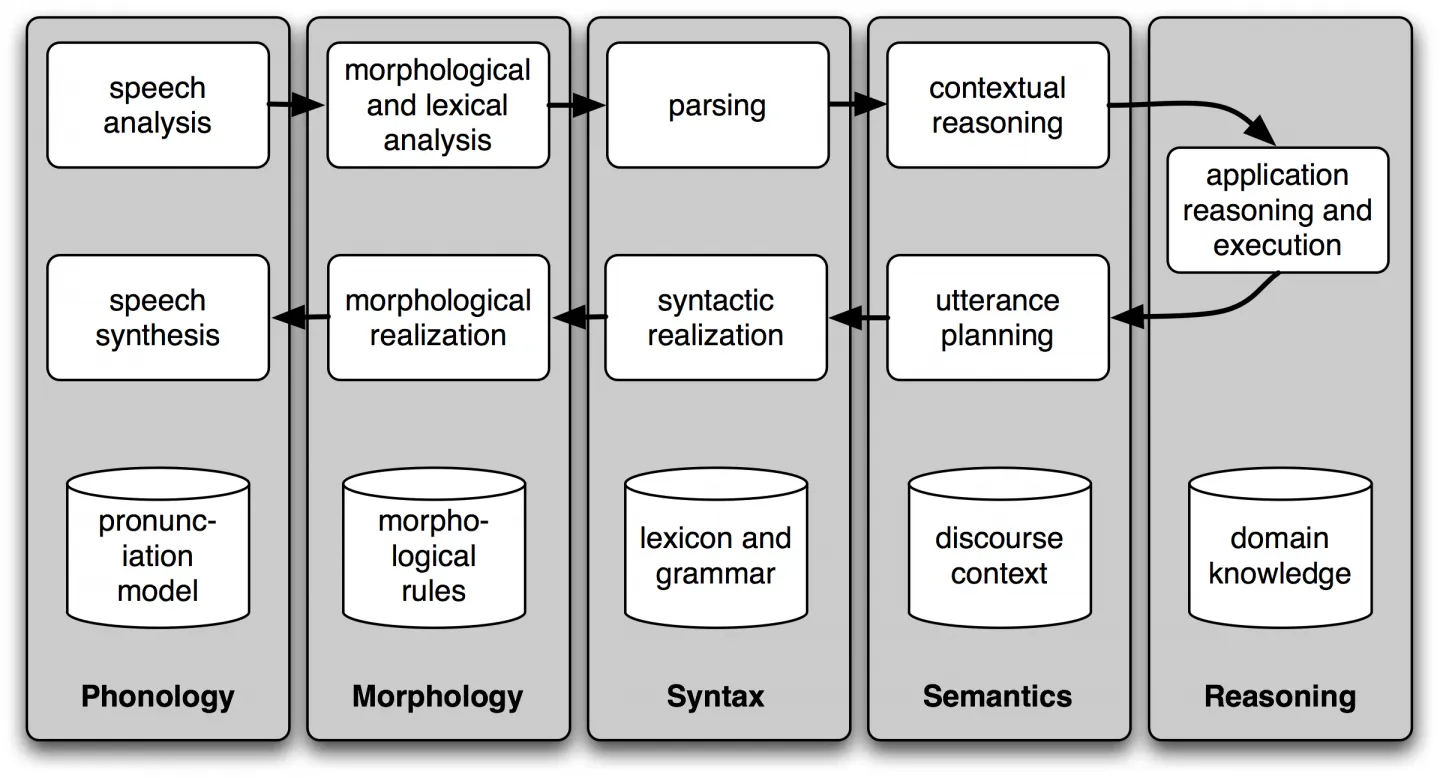
This basic technology of human relations and understanding is changing our society. We can already see tech and apps like Siri, the Cortana virtual assistant, Alexa, or the spectacular development of customer service chatbots that can help customers and communicate with them in a more accurate way.
Natural language processing for BI allows you to spend more time with those mission-critical operations where a human cannot be removed, such as posing actual analysis problems or elaborating the company's business intelligence strategy.
However, there are still some challenges with NLP: speech recognition and natural language generation. NLP advances will help your company analyse and learn more of a range of data sources, increasing productivity and giving you a competitive advantage.
4) Data Quality Management (DQM)
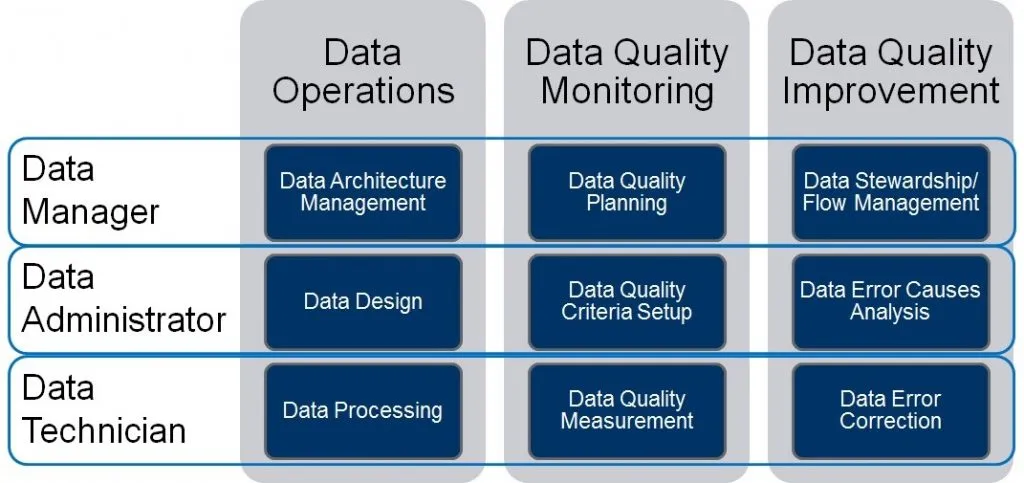
Today, most enterprises understand enough about the impact of information quality for analysis and decision-making to choose the data quality management (DQM) department, policy or tech. DQM includes acquisition, processing, implementation, distribution and efficient management and supervision of advanced information. DQM not only takes an important place in the BI trend in 2019, but it is also a game-changing practice for businesses.
5) Multi-Cloud Strategy
Clouds are everywhere for anyone who is in sync with BI trends. By 2019, as cloud computing tools become more widely available in the marketplace, more and more enterprises will continue to use cloud computing. Therefore, cloud strategy is a great option as it can reduce risk and offer greater flexibility - but such flexibility comes at a cost, as you need multiple vendors and training staff to learn multiple platforms. In addition, you reduce your discount potential by making more transactions in fewer quantities, resulting in higher prices.
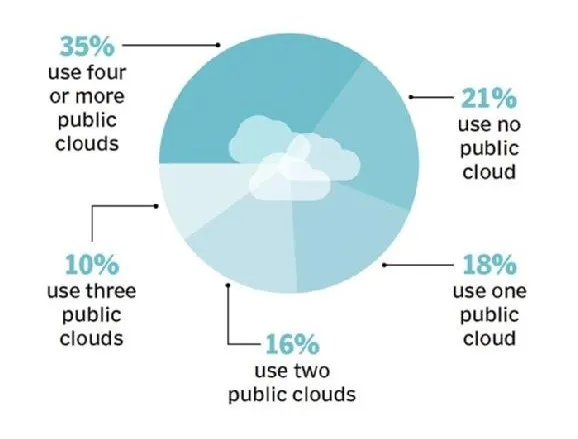
This is why the cloud is a questionable choice within enterprise, although its adoption is clearly on the rise. Companies will need to assess the needs and capabilities of its implementation to assess whether it is conducive to a multifaceted strategy.
6) Data Management
According to the Data Governance Institute (DGI), data governance is "the exercise of decision-making and authority for data-related matters.” In other words, any data entry must be controlled according to a specific standard. By 2019, corporations will increase focus on information governance and quality.
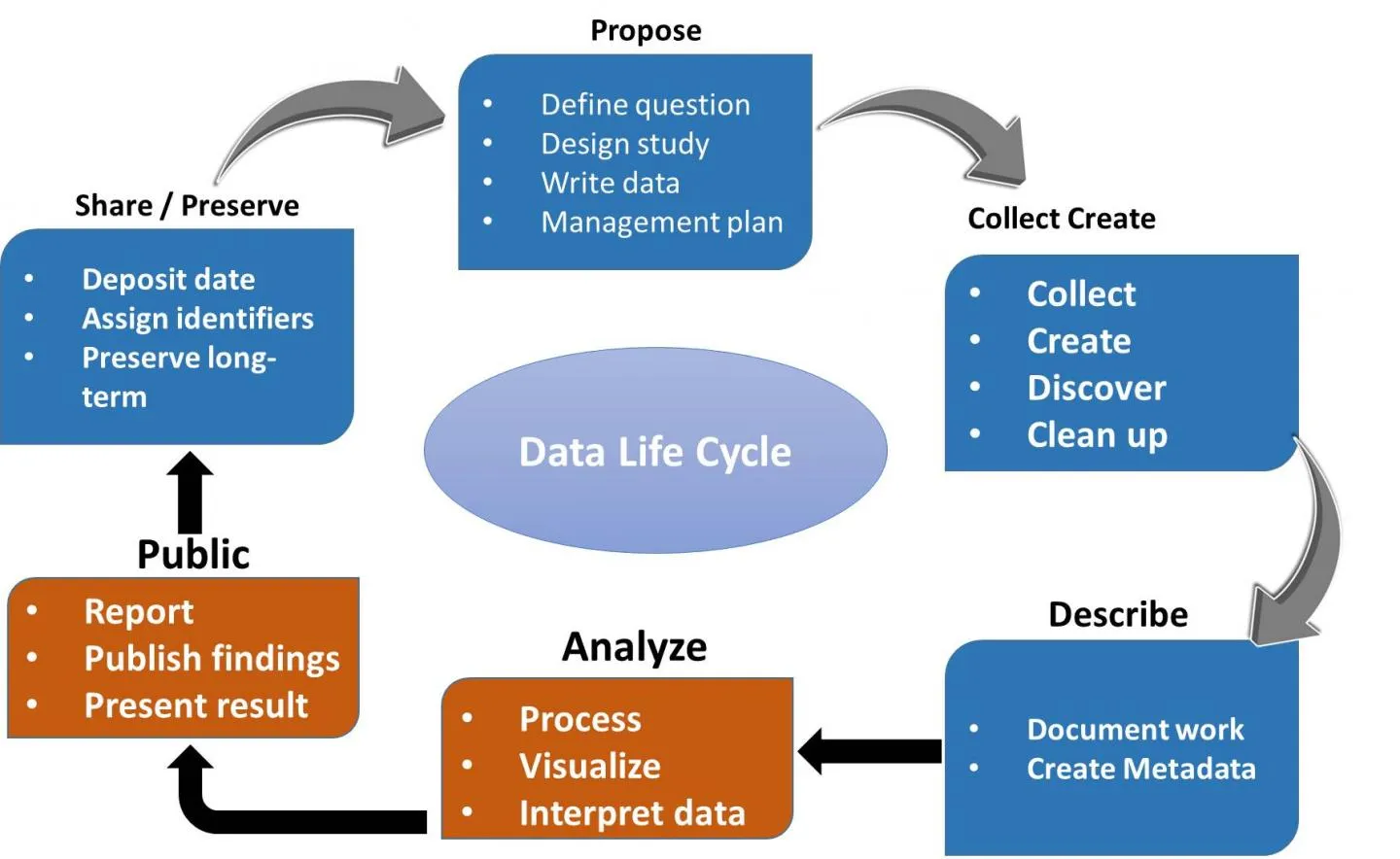
New intelligent management tools and methodologies will help propel this trend and reduce the cultural divide between business and technology. Organisations are recognising that data governance can help develop an analytical culture and meet business needs. Plus, with a clean, fast and centralised information source, people are more likely to dig deeper into your data.
7) Security
There is no doubt that security is one of the biggest trends in business intelligence in recent years. The news seem to be full of reports of database breaches and weak security issues, including data losses by such brands as LinkedIn, the NHS, Apple, MySpace, Compass Bank, JP Morgan Chase, Uber and other corporations. While large companies are launching news, others are concerned about the vulnerability of small businesses.
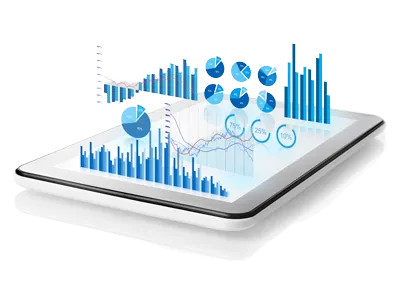
Database security has become a hot topic in both public and private sector organisations. This will only accelerate in 2019. Business owners are increasingly looking for the most secure solutions to avoid the risk of data leakage and loss.
8) CDO is Increasingly Important
Our eighth point is cited in many BI trends in 2019. Magora experts can confirm with confidence that today's statistics and analytics are becoming the heart of every business. Each company has an information director who oversees all asset management information and security issues. But today, the numbers and roles of data and analysis are growing sufficiently for a new position to emerge: Chief Data Officer (CDO), assigned solely to data management.
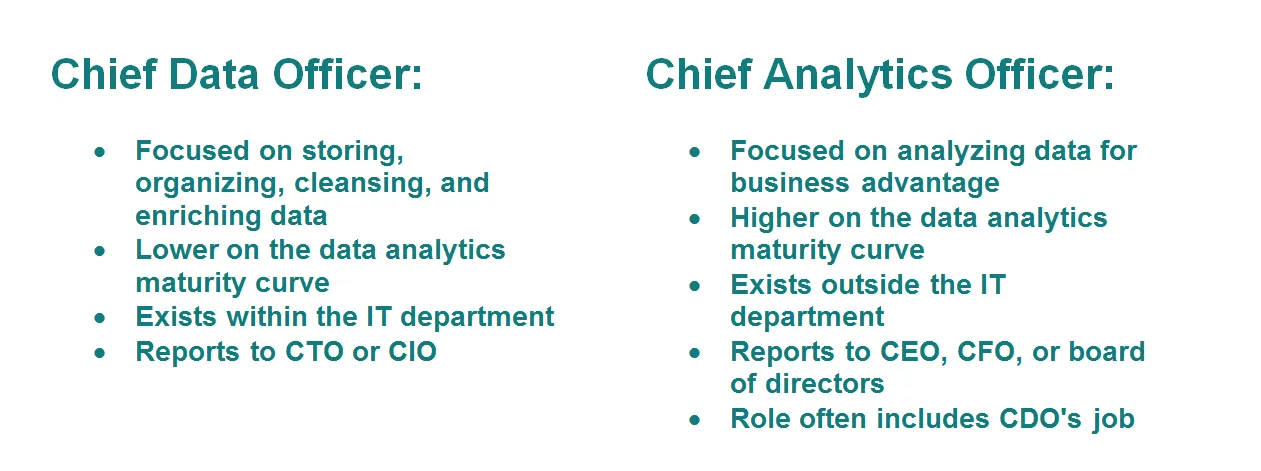
The role of CDOs is crucial to the sound management of enterprise information resources, as well as increasing the efficiency of analysis to gain a competitive advantage in BI strategies.
9) Embedded Business Intelligence
Built-in BI refers to the integration of business intelligence tools or selected functions into another business app to bridge gaps in analytics or application reporting. By doing this you can transform your raw facts into an interactive dashboard that enhances the user experience through real-time analysis and innovative figures visualisation, enabling businesspeople to make data-driven decisions faster and more autonomously.
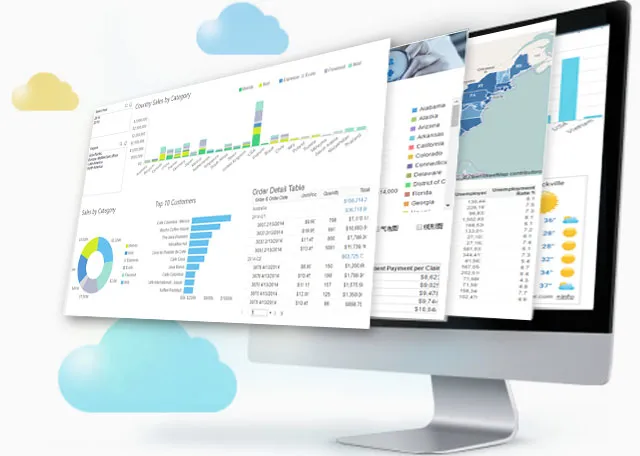
These features may be outside an app, but should be easily accessible from it so users accustomed to using other structures and interfaces do not have to switch between systems.
10) Business Intelligence Collaboration
Last but not least among the BI trends important to us: collaboration. Today's managers and employees need to interact differently in an increasingly competitive environment. Thus, we see a new kind of business intelligence: collaborative BI. This is a combination of collaborative intelligence tools and online business solutions, including social networking and other 2.0 technologies. Developed in the context of enhanced collaboration, this addresses the new challenge of fast delivery by conducting further analysis and reporting. As for collaborative BI, the phrase "self-service BI" has come up quickly because these self-service business intelligence tools do not require IT teams to access, understand and interpret all of the data.

These BI tools make sharing easier and generate automated reports that can be scheduled with specific people at specific times, allowing you to configure smart notifications to share with public or embedded dashboards on a flexible, interactive level. All of these possibilities can be used in any decision-making and problem-solving process.
Summing up the Main Trends of BI and Analytics Tools in 2019
In this article, we summarise what the future of business intelligence is. The following are the top ten analytics and intelligence trends to pay attention to next year:
- Artificial Intelligence
- Predictive and prescriptive analysis tools
- Data Quality Management
- Advanced Natural Language Processing
- Well-thought-out Cloud Strategy
- Thorough Data Management
- Attention to Security
- CDO positions
- Embedded Business Intelligence
- BI Collaboration
It’s Time to Become Data-Driven!
Being data-driven is no longer a dream, but a necessity of the modern business world. So if you have ideas on how this technology can advance your company, the Magora team is always here to help.





